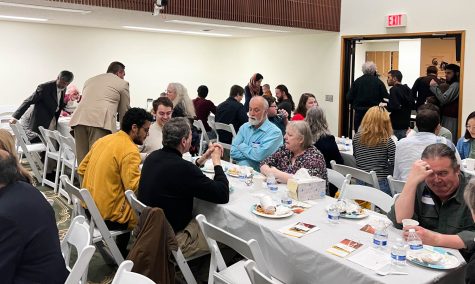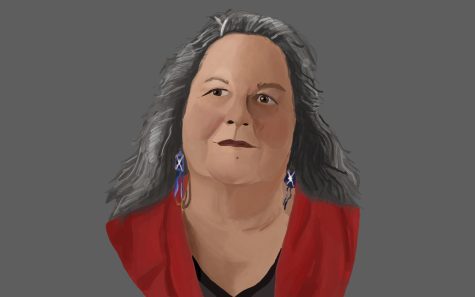Co-op offers culinary courses
March 10, 2017
{{tncms-asset app=”editorial” id=”fc83fa9a-0556-11e7-a68a-93c532bdf394″}}
The Moscow Food Co-op is working to break the stigma that healthy eating is expensive and has limited or flavorless options by offering free monthly classes with suggested recipes and tastings of complimentary samples.
WSU Dining Services Dietician Alice Ma volunteers at the co-op by teaching classes and preparing the food featured in each course.
“[At the co-op], you’re getting a better product, a local product and an organic product. There is a way to shop at the co-op where you’re saving money,” Ma said. “Healthy eating can be affordable if you know how to shop correctly.”
This idea is what the classes intend to emphasize in order to educate participants who may think otherwise.
At the Moscow Food Co-op, each month offers a new focus throughout the series. These focuses include whole grains, protein, fruits and veggies, and desserts. Newly offered in this series are meal planning and a store tour, allowing participants in the courses to delve deeper into each food group, Ma said.
The format of each class is similar; each starts with a brief 101 lesson on the food group, explaining its significance to our diet. Then, Ma moves into how to shop for and identify this food group and how to recognize price differences to remain conscious of spending.
Later in the course, Ma explains the cost differences between buying in bulk and buying individual items before going through each of her chosen recipes for that class. During this, Ma informs attendees of the various ingredient swaps they can make to decrease cost or how to use what is already at hand.
“For example, if I saw a recipe that had spinach and saw kale was on sale, I’d make a switch there,” Ma said. “Or if I had a recipe that used agave syrup, I would switch for brown rice syrup because that happened to be on sale.”
Misty Amarena, co-op education and outreach coordinator, identified a great need in the community to have access to fresh and healthy food.
“Those that are just starting to get familiar with the kitchen can build confidence through using the recipes introduced in class,” Amarena said, “and have the support of both the instructor and the attendees.”
Experienced and established healthy eaters and cooks can also benefit from courses at the Co-op by expanding their recipe collection or offering new ones to the rest of the class.
“In addition to the health and personal reasons to be conscious of what you eat, there are the moral ones,” Amarena said. “I purposely purchase fair trade [products]. I do not want to exploit others in need for my own gain.”
These classes can also diversify the community’s diet and allow customers to take control of their spending while increasing their access to food options they may not have known about before, Amarena said.
“We often struggle with price perception that is rarely related to actual data or prices,” she said. “Yet, many consumers do not even give us a chance because we are ‘too expensive.’”
The class widens contributors’ perspectives about the co-op and offers many deals and other opportunities to save money, Amarena said.
“When you don’t think about what you are eating and why, you consume less nutritious food more frequently,” she said. “In a world where we often are surrounded by things we cannot control, being conscious and in charge of what we put in our bodies can be empowering.”
The next class will be Fruits & Vegetables from 4 – 5 p.m. on Saturday at the Latah County Fairgrounds. Other classes include Healthy Desserts on April 22 and Meal Planning & Store Tour on May 6.





















